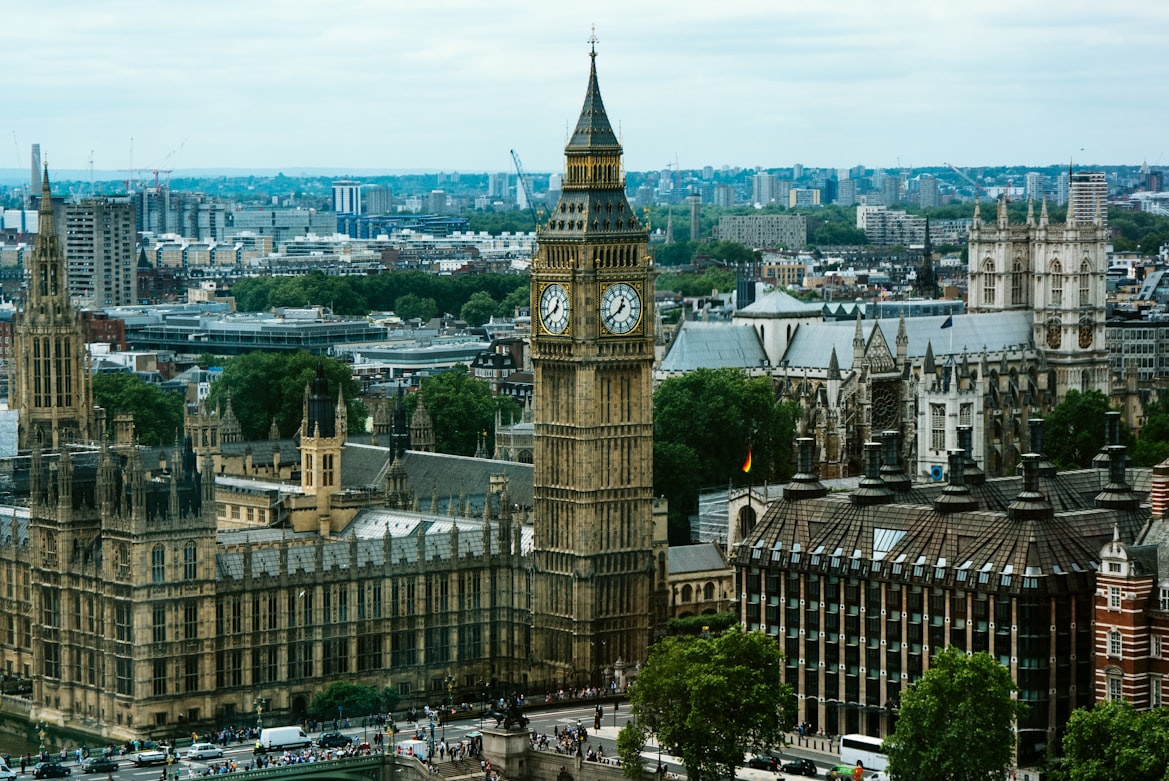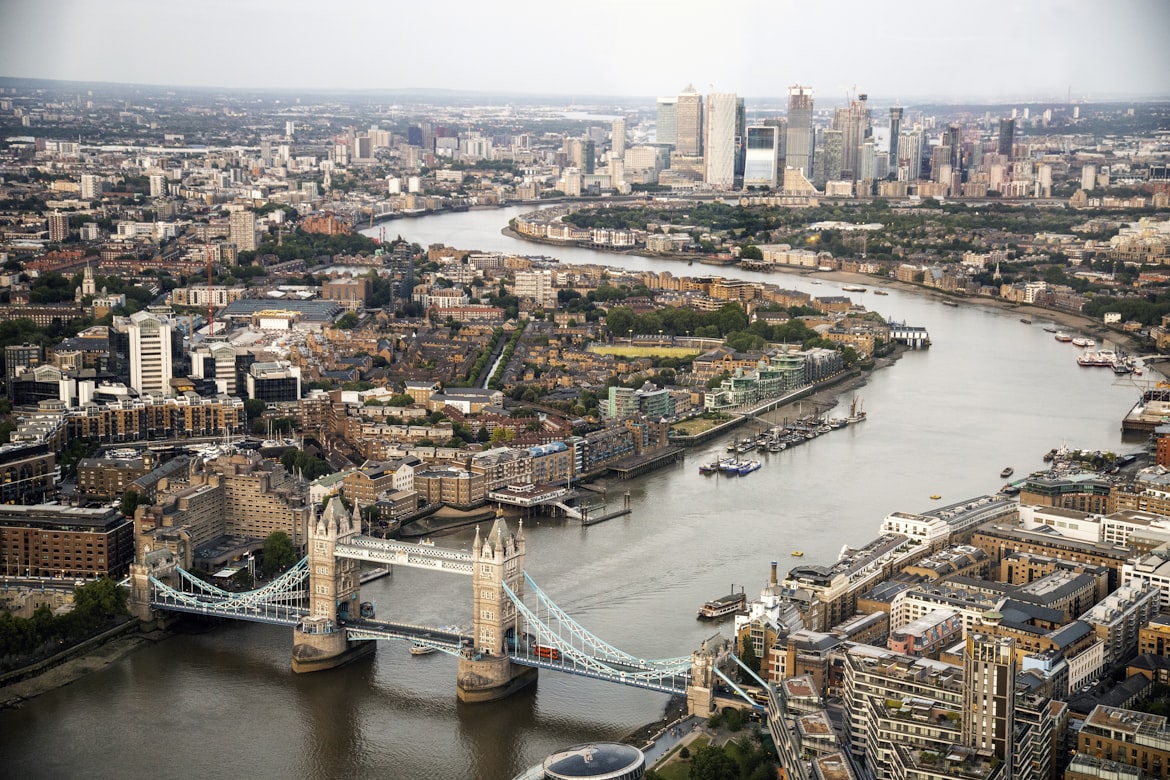Top Attractions
The United Kingdom offers a dazzling array of iconic and lesser-known attractions for every type of traveler. London captivates visitors with must-see landmarks like the Tower of London, Buckingham Palace, and the British Museum, which boasts an extraordinary collection of global antiquities. Outside the capital, Stonehenge stands as a haunting prehistoric monument in Wiltshire, while the historic Roman Baths in Bath offer a glimpse into ancient British life. Edinburgh enchants with its castle perched atop a volcanic crag and its atmospheric Royal Mile. The rugged Scottish Highlands, dotted with lochs and castles, offer breathtaking scenery, as do the Lake District’s lush fells and literary connections. In Wales, Snowdonia National Park invites adventure with hiking, ziplining, and dramatic landscapes. Northern Ireland's Giant’s Causeway features surreal hexagonal basalt columns formed by volcanic activity and shrouded in local legend.
Local Dishes
British cuisine is hearty, diverse, and rich in tradition. In England, classic fish and chips served with mushy peas and a dash of vinegar remain a beloved comfort food. A traditional Sunday roast with Yorkshire pudding, roasted potatoes, vegetables, and gravy is a staple across the nation. Scotland offers haggis, a savory pudding made of sheep organs and oats, often paired with "neeps and tatties" (turnips and potatoes). In Wales, try cawl, a warm stew made with lamb and vegetables, or laverbread, a traditional seaweed delicacy. Northern Ireland is known for its Ulster Fry, a full breakfast plate featuring soda bread, potato farls, sausages, and bacon. Across the UK, modern culinary scenes in cities like London, Glasgow, and Manchester offer a fusion of global cuisines, vegan innovation, and Michelin-starred experiences.
Transportation Tips
Traveling in the UK is convenient and efficient, especially via public transport. The National Rail network covers virtually all regions, connecting major cities and picturesque countryside towns. In cities like London, the Underground (“Tube”) is an affordable and fast way to get around, supplemented by buses and Overground trains. Regional buses and coach services like National Express and Megabus offer budget-friendly intercity travel. Renting a car is ideal for exploring rural areas like the Cotswolds, the Scottish Highlands, or the Welsh coast, but city driving can be challenging due to narrow roads and congestion charges. Cycling infrastructure is well-developed in cities such as Cambridge and Bristol. Always remember that vehicles drive on the left-hand side, and pedestrians should look right before crossing.
Budget Travel Tips
For those traveling on a budget, the UK can still offer a rich experience. Many museums and galleries, such as the Tate Modern and the National Museum of Scotland, offer free admission. Booking train tickets in advance through services like Trainline or National Rail often results in significant savings. Accommodations like hostels, guesthouses, and university dorms in summer months offer affordable stays, especially in cities. Consider purchasing an Oyster Card or contactless payment for discounted fares on London’s public transport. Self-catering from supermarkets or enjoying a meal at a pub can be cost-effective alternatives to dining in restaurants. Look for budget airlines like Ryanair and EasyJet for internal flights, and always compare prices using aggregators.
Safety Info
The United Kingdom is generally safe and has a well-developed infrastructure for tourists. Violent crime is rare, but pickpocketing can occur in busy urban centers and on public transport. Always stay aware of your belongings, especially in crowded places like London’s Oxford Street or during major festivals. Emergency services are reliable and can be reached by dialing 999. Weather conditions in rural or mountainous regions can change quickly, so check forecasts before hiking or outdoor excursions. Protests or demonstrations can occasionally disrupt transport in major cities but are usually peaceful.
Cultural Etiquette
British culture values politeness, patience, and queuing. A simple “please,” “thank you,” and “sorry” go a long way in everyday interactions. It is considered rude to cut in line or be overly loud in public places. Punctuality is appreciated, particularly in professional or formal settings. Tipping is customary in restaurants, with 10–15% typically added unless service is included. Avoid discussing politics—especially topics like Brexit or the monarchy—unless you’re invited into the conversation, as views can be strongly held.
Travel Style Fit
The UK caters exceptionally well to travelers of all styles. Backpackers will appreciate the ease of transport, budget hostels, and historical sites that can be visited affordably. Families will find interactive museums, castles, parks, and family-friendly accommodation, especially in regions like Cornwall or Yorkshire. Luxury travelers can indulge in five-star hotels, Michelin-starred restaurants, and high-end theater experiences. Culture lovers and history buffs will feel at home with the UK's wealth of historic sites, literary landmarks, and artistic offerings. Whether you're in search of a countryside retreat, a coastal adventure, or an urban cultural dive, the United Kingdom offers a seamless and enriching travel experience.

Best Time to Visit
The UK is a year-round destination, but the best time to visit depends on your preferences. Spring (April to June) brings blooming gardens, longer daylight hours, and mild temperatures, ideal for sightseeing and countryside strolls. Summer (July to August) offers festivals such as Wimbledon, the Edinburgh Festival Fringe, and relatively warmer weather, though it’s also peak tourist season. Autumn (September to November) enchants with fall foliage, especially in national parks. Winter (December to February) sees festive Christmas markets, cozy pubs, and opportunities for snowy escapes in Scotland and northern England. Rain is possible at any time, so always pack a light waterproof jacket.
Accommodation Recommendations
For travelers on a low budget, chain hostels like YHA, independent backpacker lodgings in cities like Edinburgh and Liverpool, or university dorms available during summer offer affordable accommodations. In mid-range territory, charming B&Bs in the Cotswolds, affordable boutique hotels in London like The Z Hotel Shoreditch, or cozy guesthouses in Cardiff provide comfort without a hefty price tag. Luxury seekers can opt for opulent stays such as The Ritz in London, Glenapp Castle in Scotland, or the St. David’s Hotel in Cardiff, which pair British elegance with exceptional service and amenities.
Languages Spoken
English is the official language and universally spoken. In Wales, Welsh is also an official language and appears on road signs and public documents. You may also encounter Scottish Gaelic in parts of Scotland and Irish in Northern Ireland. Multilingualism is common in large cities, particularly among immigrant communities.
Currency
The United Kingdom uses the British Pound Sterling (£), commonly abbreviated as GBP. Banknotes and coins vary slightly between England, Scotland, and Northern Ireland, but all are legal tender within the UK.
Common Traveler Mistakes to Avoid
Many travelers underestimate the size and diversity of the UK—trying to “do it all” in one trip can lead to burnout. Prioritizing a few key regions or cities will offer a richer experience. Some visitors also forget to bring a UK-specific power adapter, as the plugs differ from Europe and the US. Ignoring the weather forecast is another common pitfall—UK weather is famously unpredictable, so dressing in layers and carrying an umbrella is wise. Additionally, failing to book rail tickets in advance can be costly, as same-day fares are significantly higher.
Essential Apps & Tools
Google Maps and Citymapper are invaluable for navigating cities and planning transport routes. Trainline allows for easy booking of rail and coach tickets with real-time updates. The National Trust and English Heritage apps help travelers find historical sites across the country. Currency conversion tools like XE keep track of spending, while Uber and Bolt offer ride-hailing in major cities. For language translation or reading signs in Welsh or Gaelic, Google Translate remains helpful. For hiking and rural routes, the OS Maps app is widely used for its accuracy and trail data.
Suggested Itinerary Styles
A balanced UK itinerary might begin in London with iconic sights, a theater show in the West End, and a Thames river cruise. From there, travelers could venture west to Bath for Roman architecture, then up to the Lake District for natural beauty. A few days in Edinburgh provide cultural depth and castle views, followed by a scenic train ride through the Scottish Highlands. For those with more time, a ferry or flight to Belfast or a drive through Snowdonia in Wales introduces unique regional identities. Travelers seeking a slower pace could choose a single region—like Cornwall or Yorkshire—and explore it in-depth through hiking, local markets, and village life.
Fun Facts
The UK has over 30 UNESCO World Heritage Sites, ranging from the Tower of London and the city of Bath to Hadrian’s Wall and the Heart of Neolithic Orkney. The British Library holds more than 150 million items, including the Magna Carta and original Beatles manuscripts. London has hosted the Olympic Games three times, more than any other city. Meanwhile, the UK’s pub culture is so significant that there are around 47,000 pubs across the nation, some of which date back to the 12th century. It’s also the birthplace of iconic music legends like The Beatles, Queen, and Adele.
